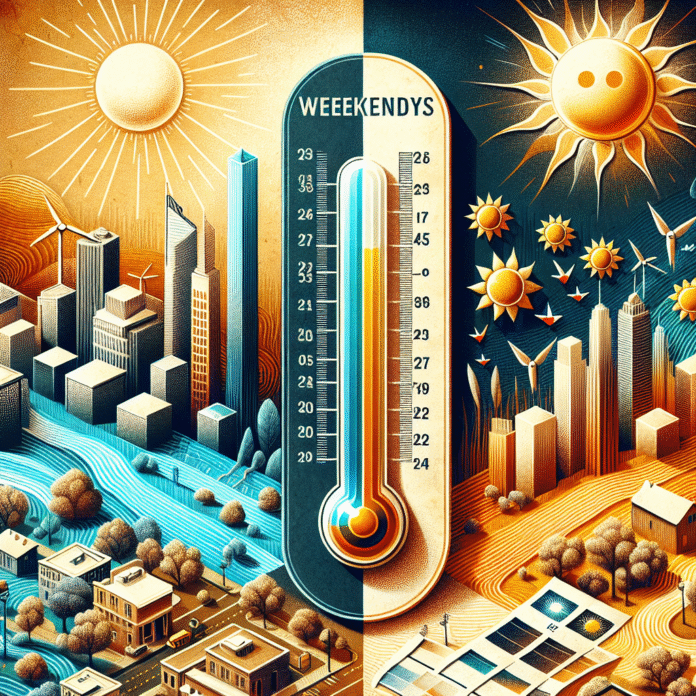Weekend Heat Wave Linked to Climate Change
Weekend Heat Wave More Likely Due to Climate Change
As temperatures soared over the weekend, many regions experienced an unseasonably intense heat wave, with several cities reporting record-high temperatures. Experts are increasingly linking these extreme weather events to climate change, suggesting that the intensity and frequency of such heat waves are likely to rise as global temperatures continue to increase.
Understanding the Connection
Climate change, driven primarily by human activities such as burning fossil fuels, deforestation, and industrial processes, has led to a significant increase in greenhouse gas concentrations in the atmosphere. This, in turn, has caused global temperatures to rise. According to climatologists, the warmer atmosphere can hold more moisture, leading to more intense storms, heat waves, and other extreme weather events.
The recent heat wave serves as a stark reminder of the impacts of climate change on our daily lives. In many areas, temperatures reached levels that posed serious health risks, particularly for vulnerable populations such as the elderly and those with pre-existing health conditions. Emergency services were stretched thin as heat-related illnesses surged.
Local Responses and Adaptation Strategies
In response to the rising temperatures, many local governments have activated emergency plans, which include opening cooling centers and providing resources for those in need. Public health officials emphasize the importance of staying hydrated and avoiding outdoor activities during the hottest parts of the day.
Furthermore, urban planning initiatives are increasingly incorporating climate resilience strategies. Cities are exploring green infrastructure solutions, such as increasing tree canopy coverage, creating green roofs, and enhancing public parks to mitigate the urban heat island effect. These measures not only help lower temperatures but also improve air quality and enhance community well-being.
The Bigger Picture
While the weekend heat wave is a clear indicator of the changing climate, it also underscores the urgent need for collective action. Scientists warn that without significant reductions in greenhouse gas emissions, such extreme weather events will become more commonplace, affecting ecosystems, agriculture, and human health.
Internationally, nations are grappling with how to respond to climate change, with many committing to net-zero emissions goals. However, achieving these targets requires cooperation across borders and sectors, as well as investments in renewable energy, sustainable agriculture, and innovative technologies.
In summary, the recent heat wave is not just a temporary spike in weather patterns but a reflection of a broader climate crisis. Addressing these challenges requires immediate action and a commitment to building a sustainable future for generations to come.


